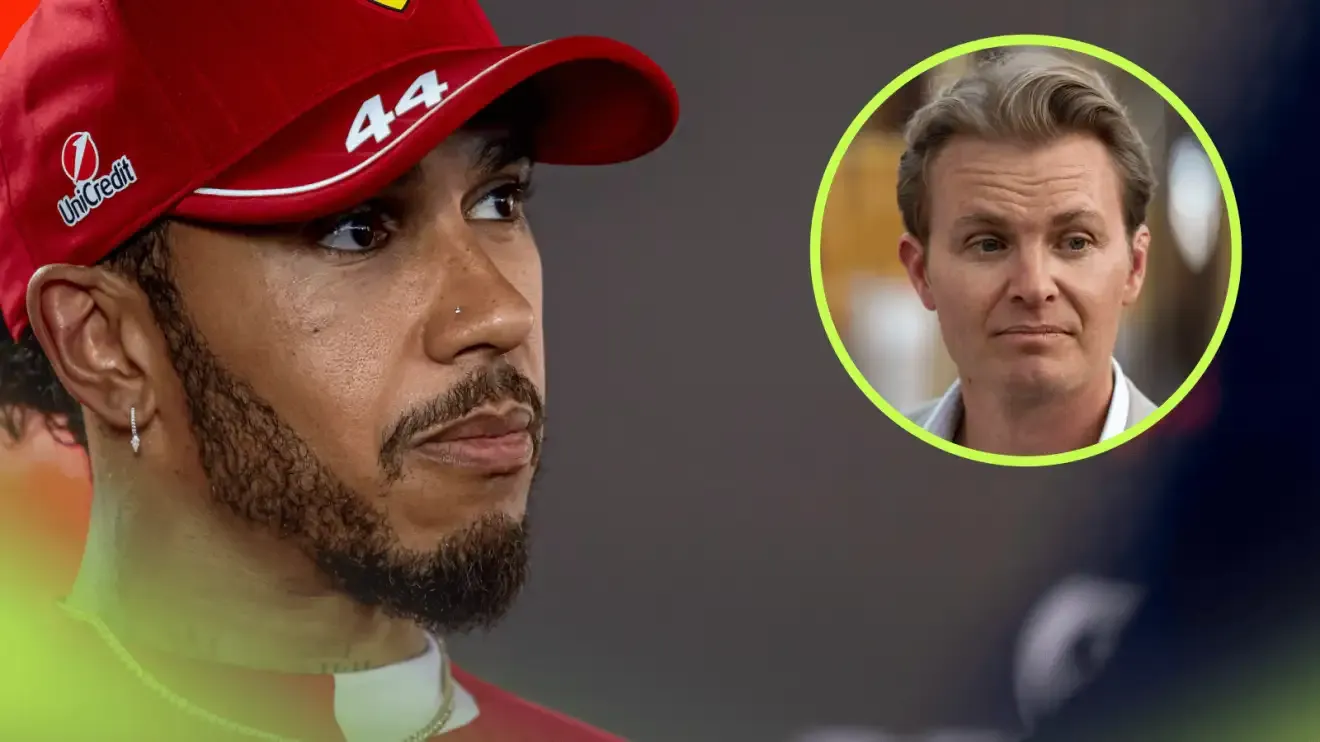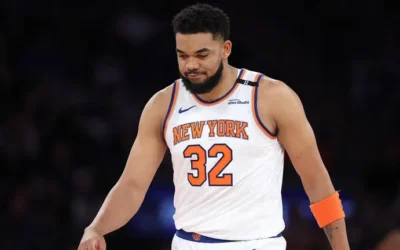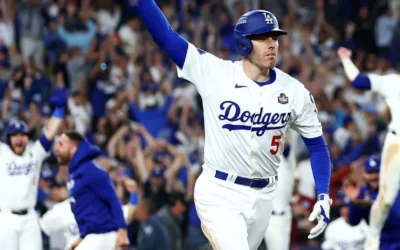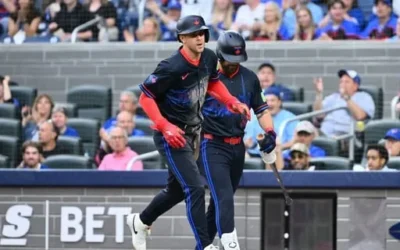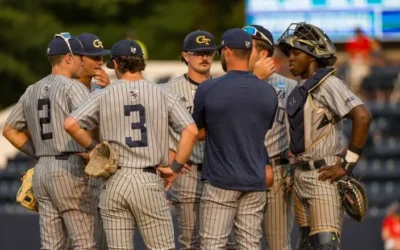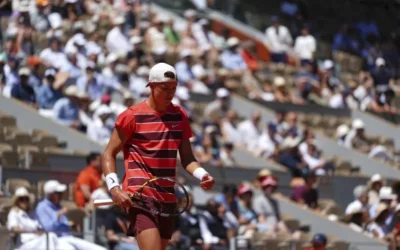Nico Rosberg Shares Worrying Theory on Lewis Hamilton’s Performance Decline in F1
In the high-octane world of Formula 1, performance is paramount, and discussions around driver skills often draw passionate debate. Recently, former F1 World Champion Nico Rosberg stirred conversations among fans and pundits with a revealing theory regarding his old rival and perennial champion, Lewis Hamilton. Rosberg, who has made a name for himself as a discerning analyst after his retirement from the sport, suggested that even the greatest of all time (GOAT) may face the inevitable decline of performance.
Hamilton’s Legacy
Lewis Hamilton’s career is a testament to his extraordinary talent and immense dedication to motorsport. With a record number of wins, pole positions, and world championships, Hamilton has etched his name in the annals of F1 history. His impressive skill set combined with a relentless pursuit of excellence has made him not only a driver to reckon with but also a symbol of success in the sport.
However, as Rosberg indicated, truths about performance levels could potentially change with time. According to Rosberg, age-related decline is a reality every professional athlete must face, regardless of their previous achievements. He indicated that every driver, even one as phenomenal as Hamilton, will confront challenges in maintaining peak performance.
The Declining Performance Debate
As Rosberg pointed out, there are many elements to consider when evaluating a driver’s performance over time. Factors such as age, physical fitness, mental sharpness, and even the nuances of car technology play significant roles. During his interview, he remarked, “Even if Hamilton is The GOAT, at some point, you get slower, and that’s simply a part of the natural aging process.” This statement has prompted a flood of reactions from fans and experts alike.
Is Age Just a Number?
Generally, the motorsports community is divided on whether age has a considerable impact on a driver’s performance. Many believe that with the advancements in training, nutrition, and technology, formula drivers are pushing the boundaries of age-related limitations. Drivers like Fernando Alonso and Kimi Räikkönen have successfully continued to compete at high levels even past their 40s, demonstrating that savvy experience can counterbalance the physical decline that typically comes with age.
Yet, a significant contrast exists when evaluating the longevity and race pace of these veteran drivers against emerging talents like Charles Leclerc, Lando Norris, and George Russell. Assessments show that new generations of racers often possess a fierce competitiveness, which can be alarming for seasoned drivers focused on racking up victories.
The 2023 Season Perspective
As we reflect on the 2023 Formula 1 season, various performances have elevated this discussion prominently. Hamilton and his team at Mercedes have encountered challenges adjusting to the evolving car dynamics, alongside stiff competition from Red Bull Racing. As his rivals close the gap, there’s a growing concern over whether Hamilton can maintain his usual level of dominance.
In fact, after witnessing several races where Hamilton was not able to secure a spot on the podium, including circumstances where qualifying prowess did not translate into race-day success, one might wonder—has father time begun to catch up with him? Rosberg’s analysis sheds light on the growing notion that age could play a factor in Hamilton’s performance trajectory.
Rosberg’s Insight on Mental Sharpness
Mental acuity is another crucial aspect that Rosberg pointed out. It isn’t just about physical reflexes; racing requires maintaining focus, strategy, and delivering consistent top-tier performances under pressure. Hamilton has had unparalleled focus throughout his career, but mental drain could accumulate even for the most celebrated athletes.
In motorsports, where split-second decisions can define races, distractions can prove costly. There’s concern that the mounting pressure and expectations could compromise Hamilton’s typically sharp decision-making abilities, leading to subpar performances. Whether it is the multitude of responsibilities outside of racing or the pressure to maintain an unbroken legacy, these mental burdens can certainly impact results on the track.
Comparing Drivers in a Competitive Landscape
Rosberg’s contrasting opinion invites the ongoing discussion regarding competition in Formula 1’s contemporary landscape. It’s become evident that every season captivates audiences with new talents pushing boundaries. The emergence of younger, skillful drivers has made the competition fiercer than ever. Suddenly, veteran stars find themselves in the crosshairs of the next generation, which can be daunting.
While Hamilton has achieved legendary status, the likes of Max Verstappen and Leclerc remind enthusiasts how quickly fortunes can change in F1. This dynamic brings forth a sense of urgency for seasoned racers to continually evolve and adapt to stay relevant. It raises the question of whether they can hold on to their competitive edge while facing hungry, ambitious upstarts.
The Future for Hamilton
Despite Rosberg’s comments, it’s essential to note that Hamilton’s career is far from over. Though signs may show a potential decline in performance, history has demonstrated that remarkable athletes often find a way to defy expectations. The resilience Hamilton has displayed throughout his career, coupled with a deep-rooted passion for the sport, leaves fans hopeful of a revival.
As the 2023 season progresses, fans will closely watch Hamilton’s trajectory on the track, longing for performances that remind them of his extraordinary capabilities. If there was ever a time for Hamilton to dig deep and rediscover that elite form, it is now. Like some of his predecessors, overcoming declining performance will define Hamilton’s legacy moving forward.
Conclusion
Nico Rosberg’s theory regarding Lewis Hamilton’s potential decline opens a profound dialogue about age and performance in Formula 1. Hamilton’s remarkable accomplishments paint a picture of supremacy, but no athlete can escape the unyielding passage of time. As passionate fans, we must consider these factors and their implications concerning greatness while cheering for all drivers on the grid. The journey of discovery will continue, as observers look forward to witnessing whether the GOAT can reaffirm his prowess or if a new era is dawning in Formula 1.

